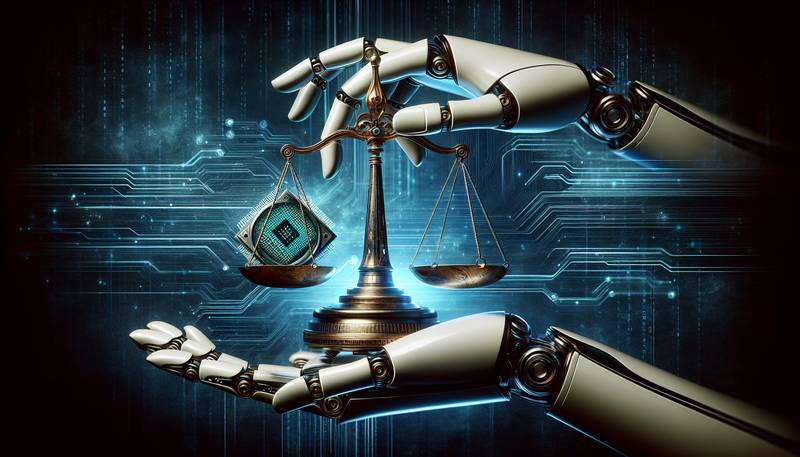AI and Ethics: Navigating the New Frontier of Technology

Introduction
The rise of artificial intelligence (AI) has brought with it a new era of technological advancement. From self-driving cars to virtual assistants, AI is transforming the way we live and work. However, as with any new technology, there are ethical considerations that must be taken into account. In this article, we will explore the ethical implications of AI and how we can navigate this new frontier of technology.
The Ethics of AI
As AI becomes more integrated into our lives, it raises important ethical questions. For example, how do we ensure that AI is used for the greater good and not for harm? How do we ensure that AI systems are transparent and accountable? How do we protect people's privacy and data when AI is involved? These are just a few of the many ethical considerations that must be taken into account when it comes to AI.
AI and Bias
One of the biggest ethical concerns surrounding AI is the potential for bias. AI systems are only as good as the data they are trained on, and if that data is biased, the AI will be too. This can have serious consequences, particularly when it comes to things like hiring practices or criminal justice. For example, if an AI system is trained on data that shows a bias against certain groups of people, it may inadvertently discriminate against those groups in its decision making.
AI and Transparency
Another ethical concern is transparency. AI systems can be incredibly complex, and it can be difficult to understand how they make decisions. This lack of transparency can be problematic, particularly when it comes to accountability. If an AI system makes a mistake, it can be difficult to determine who is responsible. This can make it difficult to hold AI systems and their creators accountable for their actions.
AI and Privacy
Finally, there is the issue of privacy. AI systems often rely on large amounts of data to function, and this data can include sensitive information about individuals. If this data is not properly protected, it can lead to serious privacy breaches. This is particularly concerning when it comes to things like facial recognition technology, which can be used to track individuals without their knowledge or consent.
Navigating the Ethical Implications of AI
So how do we navigate the ethical implications of AI? The first step is to recognize the potential for harm and to take steps to mitigate it. This means ensuring that AI systems are trained on unbiased data and that there is transparency in how they make decisions. It also means putting in place strong privacy protections to ensure that individuals' data is not misused.
Creating Ethical AI Guidelines
One way to ensure that AI is used ethically is to create guidelines for its use. This can include things like ethical frameworks that outline the principles that should guide AI development and use, as well as industry standards that set out best practices for AI. These guidelines can help ensure that AI is used for the greater good and that its potential for harm is minimized.
Regulating AI
Another way to navigate the ethical implications of AI is through regulation. Governments around the world are starting to grapple with the question of how to regulate AI, and there is a growing consensus that some form of regulation is necessary. This can include things like data protection laws that ensure individuals' privacy is protected, as well as laws that hold AI systems and their creators accountable for their actions.
Education and Awareness
Finally, education and awareness are key to navigating the ethical implications of AI. The more people understand about AI and its potential for harm, the more they can demand that it is used ethically. This can include things like public education campaigns that raise awareness about the ethical issues surrounding AI, as well as educational initiatives that teach people about the principles of ethical AI use.
Conclusion
AI is a powerful tool that has the potential to transform our lives for the better. However, it also raises important ethical questions that must be addressed. By creating guidelines for ethical AI use, regulating AI, and educating people about its potential for harm, we can ensure that AI is used in a way that benefits us all. As we navigate this new frontier of technology, it is essential that we keep these ethical considerations in mind.


